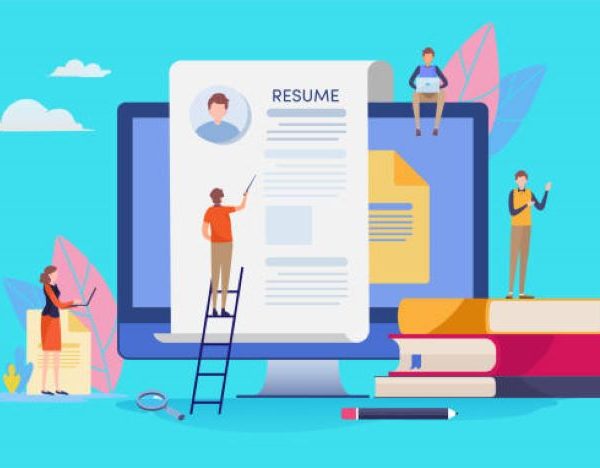Communication is the lubricant that keeps any business running smoothly. You’re in the best possible position to work if you’re in a supportive organisation where everyone knows what’s going on, what the firm’s long and short-term goals are, and, more importantly, why.
Staff feel involved and enthusiastic when there is strong workplace communication, and they feel a part of something. They work without needing to be micromanaged, and they come up with ideas and solutions knowing that they will be acknowledged and that what they propose has a strong possibility of being implemented. Let’s learn effective communication skills in the article below.
Also Read: Interactive Fiction Games for English Communication: Let’s Get Proficient in English Communication!
Essential Communication Skills
No matter what business you work in, being able to communicate effectively and efficiently with coworkers, superiors, and staff is critical. Workers in the digital age must be able to send and receive communications efficiently in person, via email, phone, and social media. These communication skills will help you advance in your job, get employed, and be successful.
Do you want to stand out from the crowd and make yourself unique? These are some of the most important communication skills to have on your resume and cover letter, according to recruiters and hiring managers. Make a strong first impression by demonstrating and emphasising these talents during job interviews. If you keep honing these talents after you’ve been hired, you’ll amaze your coworkers, boss, and clients.
Communication Skills for Workplace
Even it is a workplace or a personal setting people must first and foremost listen to one another. More than that, they must listen to one another, consider what is being said, acknowledge it, and comprehend it.
The most serious miscommunications occur when people fail to pay attention and then act on what they think was said rather than what was spoken. From directors on down, active listening is one of the most critical skills someone can learn.
Also Read: English Conversation: Let’s Learn English Effectively by Talking about a Holiday
Empathy and Patience
The most important thing someone can do after the hearing is to understand and empathise with others. You can better comprehend how other people feel, get a better understanding of how you can help them, grasp their frustrations and pain points, and interact with them if you can put yourself in their shoes. That applies to your coworkers, management, and even your customers.
Along with empathy, a little patience and composure may help you gently convey how you’re feeling, even when you’re annoyed and upset, which gets your point across better and is far less likely to lead to an argument or enrage someone.
Be Positive
Choosing a good attitude makes life much easier and more pleasant for you and those around you. If you’re usually upbeat, you’re more likely to believe that things can be done and issues handled than that they can’t. You feel better, and you look for the positive in things, which you do.
That’s a far better approach to operate than being the one who always dismisses every suggestion and expects everything will go wrong. When things go wrong, having a good attitude will help you deal with them much better.
Also Read: Ways to Improve English: Learn and Improve Through English Speaking Conversation Course
Respect
People will be more willing to communicate or engage with you if you show them that you appreciate them and their opinions and points. Simple gestures such as making eye contact, calling someone by their name, and actively listening when they talk will make them feel valued. Avoid distractions while on the phone and keep focused and intact on the conversation.
Take the time to proofread and revise your email to show respect. If you write a sloppy, perplexing email, the recipient will assume you don’t respect her enough to think things through before communicating with her.
Improve Communication Skills
When you’re communicating or listening, pay attention to your body language. Folded arms and leaning back can make you appear aloof, uninvolved, and closed to new ideas, whereas open, relaxed shoulders and leaning forward suggest you’re engaged, really listening, and open to ideas.
Be Open-Minded
Returning to the optimism theme, being open to possibilities or open-minded can get you a lot further than dismissing every idea before it has a chance to succeed.
Along with that, being truthful and disciplined is essential. In every scenario, trust is crucial, and when individuals work together and in a team, they need to know they can trust each other to accomplish what they say they’ll do and, to be honest, and truthful about it.
Yes, it includes when you’re the one who messed stuff up. It happens from time to time, but it isn’t the end of the world. Remember, if people aren’t aware of the problem, they can’t help you fix it.
Positive Feedback
An important communication skill is the ability to give and accept appropriate feedback or response. Supervisors and managers should be on the lookout for new ways to deliver constructive feedback or response to their employees, whether it’s through email, phone conversations, or weekly or monthly status reports.
Likewise, you should be able to accept and even encourage other people’s feedback and their remarks. Listen to the feedback you’re given, ask clarifying questions if you’re unclear about something, and make an attempt to put it into practice.
Also Read: Barriers of Communication: Let’s Check Out the Effective Ways to Communicate!
Communication Courses
As long as it’s done correctly, regular feedback is a fantastic way to help employees develop and reach their own goals. Bad-tempered criticism will never go you further than constructive, genuinely helpful input.
It’s better if everyone in the firm is on the same page, so enrolling in the same communication course or hiring a trainer to cover the subject across the board is the best way to go.
Communication courses, whether online or in-person, are excellent for assisting people in identifying where they are going wrong, learning new ways to interact with one another, and figuring out how to go forward.
Conclusion
Promoting workers with strong communication skills is a terrific method to get other employees to follow in their footsteps. You’ll also receive a new manager that understands what you’re attempting to accomplish and is already adept at communicating with you and their staff.
That’s all there is to it. Follow the tips above in a way that works for your company and your employees, and you could be on your way to becoming the kind of firm that people want to work for and clients adore.
You also have the choice to download the Fluent Life app on your mobile phone for customized personal lectures where you get instant feedback on your performance and can resolve all your queries.
Also Read: Best Interview Preparation Course: Let’s Look at Some Important Interview Tips for Freshers






